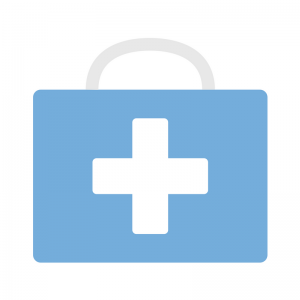Emergency Preparedness Especially For Seniors (Part 2)
In the first part of this article, we covered three top priorities for the elderly in case of a large emergency. Those three were: water (a minimum of a 3 day supply), non-perishable food, and sanitation. We'll continue this article with other considerations that must be taken when caring for seniors or the elderly to help prepare them in case there is a widespread emergency.
Perhaps listed within the topmost priorities when dealing with a senior citizen would be to have a good supply of any life-saving medicines that they are on. If they have heart issues, or asthma, for instance, be sure that their supply of medicines do not run so low that they would not be able to be sustained for a couple of weeks. If there is a widespread disaster of some kind, perhaps utilities would be in running order within a few days, but often accessibility to a pharmacy or drugstore could be impaired. They will need time to come up with a game plan for how they can refill prescriptions, so be sure that their supply of medicine currently on hand allows them that time so that it does not add extra stress to an already stressful situation.
Temperature control should also be a consideration. If you live in extreme weather areas (the far north or the far south), be sure that they have the means they need in order to keep their core temperature where it needs to be. In the far north, where temperatures can go as low as -50, they need to have a propane, fuel oil or wood heat source in case the power goes out. Also be sure that they have an adequate supply of blankets & even a hot water bottle so that they can climb in under covers & heat the bed directly around them to get truly warm. In the far south, be sure that they have access to water for wetting down towels to place on their neck & also a battery operated fan. Sometimes extreme temperatures can be just as devastating medically for them as dehydration. The bodies of aged individuals have a harder time coping.

Extra amenities that will be helpful are listed below. These are simple suggestions that can make life a little more bearable when the pressure is on. They are not necessary for physical survival, but can be of great help to make the emergency tolerable mentally.
-Chocolate or another favorite snack
-Crosswords or other puzzles to help pass the time
-Hobby items that do not require power
-Photo albums to look through
-Journal
-Books to read
Add other things that you think might be helpful for keeping your loved one calm under pressure. Put all of these things in an easy to reach location, along with other emergency supplies. None of these things should take over your life. Your time or theirs should not be consumed with worry about a disaster. These are just measures to take to help in various rough patches that can occur during an emergency. Once you have a decent supply in place, check in about every 6 months to see what has been used, or what might need to be updated or replaced. No one is every fully prepared for a large emergency, but hopefully these two articles will give you something to think about as you consider the seniors in your life & their safety.




